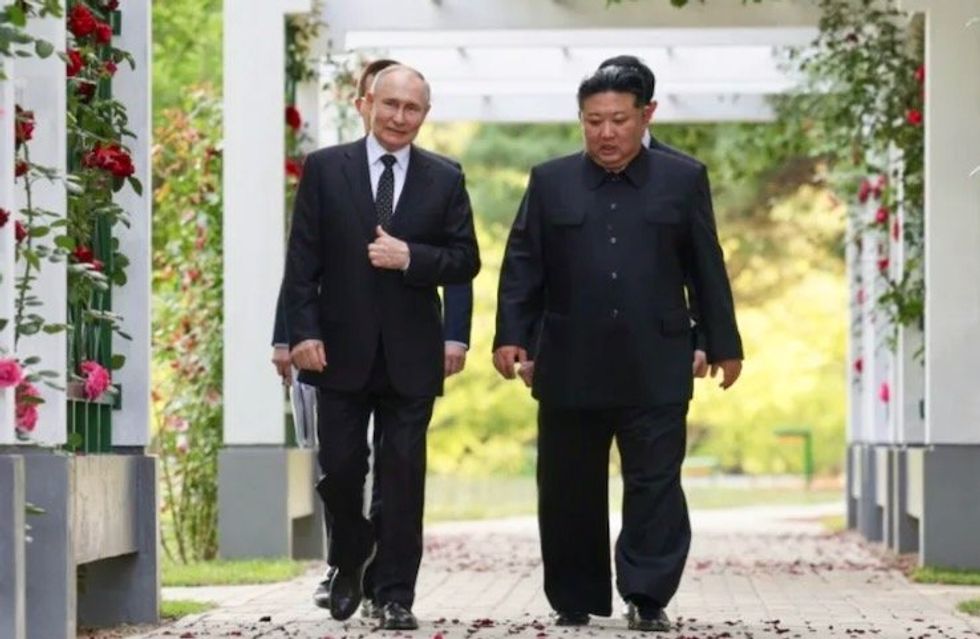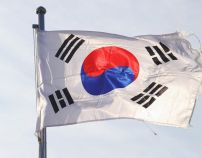Tensions have also continued in the Korean Peninsula despite previous diplomatic initiatives. In this elaborate game that the region has been...
Vous n'êtes pas connecté
- English
- Français
- عربي
- Español
- Deutsch
- Português
- русский язык
- Català
- Italiano
- Nederlands, Vlaams
- Norsk
- فارسی
- বাংলা
- اردو
- Azərbaycan dili
- Bahasa Indonesia
- Հայերեն
- Ελληνικά
- Bosanski jezik
- українська мова
- Íslenska
- Türkmen, Түркмен
- Türkçe
- Shqip
- Eesti keel
- magyar
- Қазақ тілі
- Kalaallisut ; kalaallit oqaasii
- Lietuvių kalba
- Latviešu valoda
- македонски јазик
- Монгол
- Bahasa Melayu ; بهاس ملايو
- ဗမာစာ
- Slovenščina
- тоҷикӣ ; toğikī ; تاجیکی
- ไทย
- O'zbek ; Ўзбек ; أۇزبېك
- Tiếng Việt
- ភាសាខ្មែរ
- རྫོང་ཁ
- Soomaaliga ; af Soomaali
Rubriques :
 Maroc - EURASIAREVIEW.COM - A la une - 18/Jun 16:04
Maroc - EURASIAREVIEW.COM - A la une - 18/Jun 16:04
Divided Korea: From Cold War Stalemate To Reunification Efforts – OpEd
The conclusion of the World II War was a significant moment for the Korean Peninsula as it brought hope for independence and self-governance. However liberation of Korea from Japanese colonial rule in was 1945 followed by a series of international failed negotiations to establish a unified government. Instead, these negotiations laid the groundwork for the division of Korea into separate two states with different political ideologies and governments.; The Moscow Conference of 1945 and the subsequent Soviet-Joint US Commission played vital roles in this process. The conference held in December 1945 involved Allied powers (Soviet Union, United States and the United Kingdom) and aimed to determine the post-liberation government for Korea. The Allies agreed to establish a provisional government recognizing that needed Korea a transitional period to develop the necessary institutions and governance structures for full sovereignty. The decision was seen as a step towards Korean self-determination. However, the practical implementation of this required negotiations and collaboration between the occupying powers – particularly the Soviet Union and the United States. The Soviet-Joint US Commission, established in 1946, was tasked with forming a unified provisional government. However, from the start, they faced significant challenges due to the ideological divide between the communist North and the capitalist South. The negotiations between the Soviet Union and the United States encountered obstacles due to deep mistrust and conflicting interests, reflecting the broader geopolitical tensions of the early Cold War era. One point of contention was the inclusion and role of various Korean political groups in the provisional government. The Soviets supported left-leaning groups in the North, while the United States backed right-leaning and nationalist groups in the South. These disagreements were tied to the broader strategy of the superpowers' interests in East Asia. As the negotiations continued, the disagreements intensified and the possibility of a unified government became increasingly unlikely. In 1947, the commission failed to reconcile these differences, resulting in a stalemate. This failure led to the establishment of two separate governments in 1948: the Republic of Korea (South Korea) in August and the Democratic People's Republic of Korea (North Korea) in September. The division solidified by the outcomes of the Moscow Conference and the Soviet-US Joint Commission has endured for seven decades, shaping the geopolitical landscape of the region. In conclusion, the Moscow Conference and the Soviet-US Joint Commission were pivotal moments in Korean history. While their efforts facilitated the independence and self-governance of Korea, they ultimately highlighted deep-seated ideological divisions in the post-World War II era. The failure to establish a unified government set Korea on a path of division that persists today, underscoring the complexities of state-building in a bipolar world. The division of the Korean Peninsula into South Korea and North Korea has led to the creation of two separate entities with distinct political systems and sovereignties. South Korea is a democratic country with a strong economy, while North Korea is governed by a totalitarian regime with a centrally planned economy. Both governments claim authority over the entire peninsula, but they do not fully represent the unified Korean people. Despite political divisions, Koreans on both sides view themselves as part of a single Korea. The shared language, history, and culture contribute to a strong national identity. However, this sense of unity remains unresolved due to the prolonged separation and differing ideologies of the two states. Family separations and cultural tensions have further complicated the issue. Have there been significant milestones in fostering dialogue in the efforts to reunify the Korean Peninsula? Inter-Korean summits, economic cooperation, and cultural exchanges have demonstrated a mutual interest in improving relations. However, political and ideological differences continue to serve as major obstacles to reunification. North Korea's position on its political system and nuclear program, along with the need for denuclearization and political reforms, further complicate the path toward reunification. In Conclusion, The division of the Korean Peninsula has resulted in two separate governments, each claiming legitimacy over the entire region. The unresolved national identity among Koreans, marked by emotional ties and a shared cultural heritage, highlights the limitations of the current political division. Reunification efforts face significant challenges, but dialogue and engagement continue to be important for the future of the peninsula. The opinions expressed in this article are the author's own. References Cumings, Bruce. Korea's Place in the Sun: A Modern History. New York: W. W. Norton & Company, 2005. Oberdorfer, Don. The Two Koreas: A Contemporary History. New York: Basic Books, 2013. Armstrong, Charles K. The Koreas. New York: Routledge, 2007. Scalapino, Robert A., and Lee Chong-Sik. Communism in Korea: The Society. Berkeley: University of California Press, 1972. Kim, Samuel S. The Two Koreas and the Great Powers. Cambridge: Cambridge University Press, 2006. Moon, Chung-in, and John Ikenberry. The United States and Northeast Asia: Debates, Issues, and New Order. Lanham: Rowman & Littlefield Publishers, 2008.
Articles similaires
North Korea Accuses US, Japan, South Korea of Creating 'Asian Version of NATO'
MOSCOW (Sputnik) The North Korean Foreign Ministry has accused Japan, the United States and South Korea (ROK) of creating a "Asian version of NATO"...
North Korea’s Kim Hails Russia Alliance, Promises Putin Support On Ukraine
By Taejun Kang North Korean leader Kim Jong Un hailed a “new, high level of alliance” with Russia on Wednesday as he promised President...
Putin’s Visit To North Korea: Geopolitical Shifts And Global Implications – OpEd
President Vladimir Putin’s visit to North Korea comes at a crucial time for global relations and signifies a significant shift in geopolitical...
A Nuclear Calculus? The Security Risks And Diplomatic Challenges Of Russia-North Korea Alliance – OpEd
In June 2024 the formalisation of a strategic partnership between Russia and North Korea emerged as a pivotal development far with far-reaching...
Seoul and Pyongyang’s propaganda may lead to war in the Korean Peninsula
During the recent weeks, while anti-Pyongyang activists in South Korea sent dozens of balloons containing K-pop, US dollar bills and propaganda...
Russia-North Korea defense pact makes unification impossible, ex-diplomat says
Editor’s note: This is part one of a two-part interview with former Russian senior diplomat Georgy Toloraya on the implications of the new treaty...
U.S., allies condemn N.Korea for sanctions-busting arms sales to Russia
Washington and its allies challenged North Korea at the United Nations on Friday over claims Pyongyang is breaching arms control measures by supplying...
South Korea reacts to North Korea’s pact with Russia
South Korea is going to re-evaluate its stance on supplying lethal arms to Ukraine in response to North Korea strengthening its cooperation with...
As threats from North Korean and Chinese rise, U.S. looks for defense partnerships with Asian allies
The United States wrapped up its first multidomain exercise with Japan and South Korea in the East China Sea on Saturday, a step forward in...
Les derniers communiqués
-
Adobe Brings Conversational AI to Trillions of PDFs with the New AI Assistant in Reader and Acrobat
Adobe - 21/02/2024
-
Laura Frigenti takes the Helm as Chief Executive Officer of the Global Partnership for Education
Global Partnership for Education - 05/12/2022



